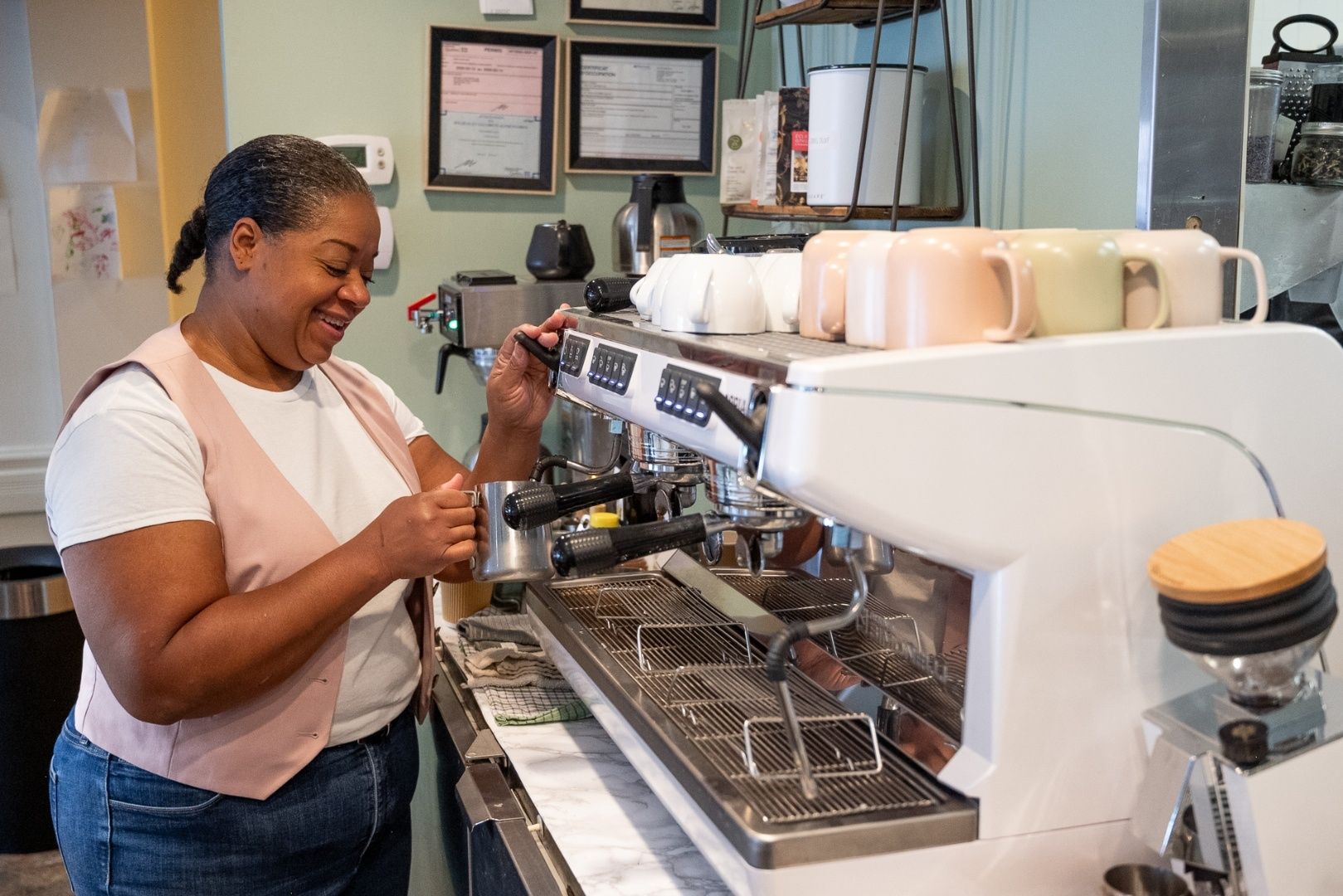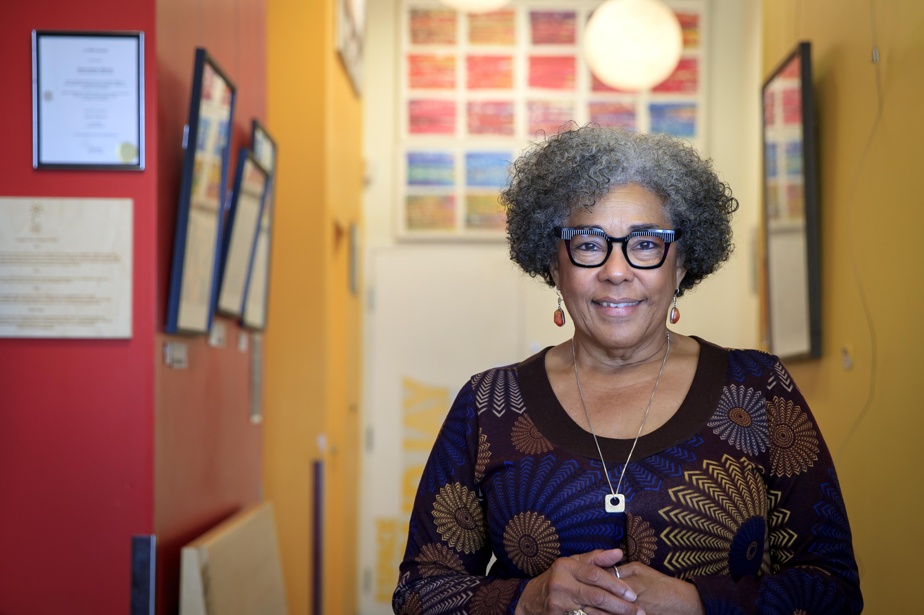Benny Adam is a Moroccan-Canadian artist and producer. He has collaborated with numerous artists including Niro, La Zarra, Obia le Chef, Nayra, and Zach Zoya. Having produced various musical styles, for the last three years he has focused on a style that is unique to him: draï — a musical style with the rhythm of Moroccan chaâbi*, the tempo of drill and raï lyrics.
Benny Adam opened his Casablanca recording studio in La Converse. He looked back on his career, from his adolescence in Montreal to his rediscovery of North African music, including his years as a producer in France.
The rap bug
In September 2001, Benny Adam, newly arrived in Quebec with his family, went into 2E high school in Lachine. He still remembers the morning of September 11, and the fixed gaze of the physics-chemistry teacher on him — the only Arab in the class — when he announced to the students the terrorist attack in New York. “And then, it started with a debate in class, with lots of amalgams, like: “Are you riding a camel in Morocco?” I said, “Yes, and we stop at the red light. We are not savages.” I was a little comedian, I protected myself with that. I would rather make people laugh than feel different.
In 2002, the release of the movie 8 Mile inspires several teenagers to improvise Battles of rap. “I am Moroccan, I am a charrieur, so I was very strong. With my gang, we went into the bathroom at school, like cockroaches, and hit each other,” he recalls. One of the members of the group had a computer and a headset with microphone. They thus record their creations and circulate them on MSN. “It was not like today, where everyone is a rapper. At the time, we didn't even think we were rappers, but just being able to hear our voice was something. And I got the injection, because right from the start, everyone said to me: “Oh, you're too strong!” So I started to identify with that.”
At Collège de Bois-de-Boulogne, he spent more time socializing in the cafeteria than studying in the classrooms. “I saw that as my first fan base. I was the rapper from Bois-de-Boulogne.” He self-produced his first album and sold a hundred copies to his college classmates. When he started having trouble selling the rest, he organized a concert and sold the record in a bundle with the tickets. “I filled the Sala Rossa at 18,” he recalls. He even manages to make a profit and pay all the people who helped him.
“My talent is not in music”
When he thought he had kicked off his career, it was a great disappointment. “It was a journey through the desert for three or four years,” he says. “I started making music at the worst time. The record was no longer selling. Piracy was at an all-time high. There was no YouTube or social networks yet. Record companies no longer signed rap singers, because they no longer believed in them. And then I was in Montreal, where the hip hop scene was almost non-existent.”
Obstinate, Benny Adam stopped studying at 18 and produced his own creations, which he broadcast online. “When I released my projects, other artists asked me who my producer was. When I told them it was me, they asked if I could sell them Prods.” He then put his career as an artist on the back burner and focused on producing to make a living. “At the beginning, I was the artist, I was not a producer. But I can get really good at something out of necessity.”
During his 20s, while his friends still lived with their parents, all had a car and traveled the world, he did not have enough money to visit his family in Morocco. “I was the shame of the family. They paid for my plane ticket because they wanted to see me and because, of course, I didn't have 1,500 bucks left! ” He actually sings it in his title Travolta : “The daronne didn't want to. Now she is screaming: he is my son! “I had odd jobs until I was 25, until I had my first Break as a producer. And since then, that's it, I've only done that. It has been my full-time job for over 10 years.”
Although, according to him, the chances of succeeding in music are slim, he adds that he is not afraid of risk. “I am stubborn from birth. Even if I am told that it is not possible, if I feel it in my heart, I go for it.”
Self-taught and ingenious, Benny Adam admits that this is his true talent. “There are plenty of people who make music as well, if not better than, me. There are plenty of people who write just as well, if not better than me. Where I know something that is out of the ordinary is this ability to absorb risk and to be really stubborn.” It's not so much self-confidence as an obstinacy to get things done in everything he does. “I'm not saying I'm going to get there. I'm just saying I'm going to go through with it.”
After being spotted by a French producer visiting Montreal, he continued his career as a producer in Paris.
Despite his precarious situation, he is happy to play in the big leagues. “I said to myself: “Look down and work, now you're in. You are not rich, you are not comfortable, but you are in the running.” Before, in Montreal, I had the impression of being On the Sidelines, watching the NBA.” Sometimes he didn't have anything to eat. “There was a candy vending machine in the studio. The artists did not get their change back (20 euro cents). At the end of the day, I picked up all the coins and picked up a Kinder Bueno. And then I went home. Sometimes I walked for an hour when I didn't have enough to take the bus, he recalls. Today, I am proud to say that I went through it. But at the time, I was experiencing it very badly and I didn't tell anyone about it.”
He then promised himself not to return to Montreal without a gold record. He accumulates six. During this period, he co-produced the album The others by rapper Niro at Capitol Music France, including hits White spring And Vamos. In particular, he produced the creations of rappers YL and SCH, before moving on to French pop (Tessa B., Yseult, and Claudio Capéo). He is also the one who discovers La Zarra and brings it with him to France. She was enormously successful: her first Single, You will go away, is certified platinum in France. In Canada, this record — co-written by Benny Adam — won the International Song Prize in 2023. Benny Adam shares information on his networks by claiming to be the” First Moroccan with yellow hair to win an award at SOCAN”!

In 2022, his duo with Amel Bent, Lossa, makes him known to the French public as an artist. To date, the song has been listened to over five million times on Spotify. In Quebec, the title Start Over, with Zach Zoya, was a hit. It is now approaching 10 million listens on Spotify.
His career as an artist is often relegated to the background. When he found time, he composed and produced his own songs, which he released as EPs entitled La Barquetterie. He released three: in 2019, 2020 and 2021. Since 2016, his Instagram account has been called @bennyadam2024 to remind him that 2024 will be the year he will release his first album.
Despite all this success, in Paris, every time he tries to add a touch of North African music to the works he produces, he faces a clear rejection. Enough to make him want to explore this path and rediscover the musical heritage of his country of origin. First with the title Alizée, at a pace inspired by Visa o Passport, a classic of Moroccan Chaabi music. In fact, Abdelaziz Stati, the interpreter of the original play, makes an appearance in The clip of the song.
Create a genre “where Maluma poses on a chaabi rhythm”
He goes back and forth to Morocco, meets musicians from all over the country, and records instrument loops to build a bank of Moroccan music samples. “For a genre to exist and flourish, it cannot be a single artist, it must be a movement of artists. Initially, I wanted to monetize this sound bank by putting it on Splice (an online platform that offers samples, loops, plugins, and collaboration tools for musicians and producers). But I was lazy, and in the meantime, I shared it with the people who came to my studio.”
Beyond his musical career, Benny Adam wants to contribute to the revival of North African music. “I think that our chaâbi rhythm can have an international appeal, as much as Nigerian Afrobeat, as much as reggaeton, as well as house music. My dream is not just to break through as an artist, it's to create a genre where the singer Maluma poses on a chaâbi rhythm. [...] Today, you have artists like Tif or Dystinct who are starting to hit a chord with this rhythm. Where we are not in the same vision is that I only want to do that.”
For him, having an international impact requires authenticity. And it is this need for authenticity that encourages him to draw on his roots and to learn more about North African rhythms. “As a child, in Morocco, we always heard that Morocco in the 1970s was better, or we heard about [Morocco's participation in] the 1986 World Cup as a historic moment for the country. Since they only talked to us about things we had not experienced, we internalized the fact that everything that is Moroccan is necessarily rubbish. That's why, when you go elsewhere, without people even judging you, you feel worse than they do. I don't want my kids to go through that. I want them to say proudly that they are Moroccans.”
Benny Adam aspires to make music out of desire, not out of necessity. “I think that's where I would make the best music.” Until then, he kept the promise he made to himself. Her first album, entitled I'll explain to you later, is ready. It will be out in a few months.
* Chaabi: Moroccan chaabi is a lively folk music that is often played during celebrations. It is played with traditional instruments, such as the guembri (a three-string lute), derboukas (drums), lutes as well as violins, the accordion, and sometimes the electric guitar for a modern touch. The word “chaabi” means “popular” in Arabic.




.avif)

.jpg)

